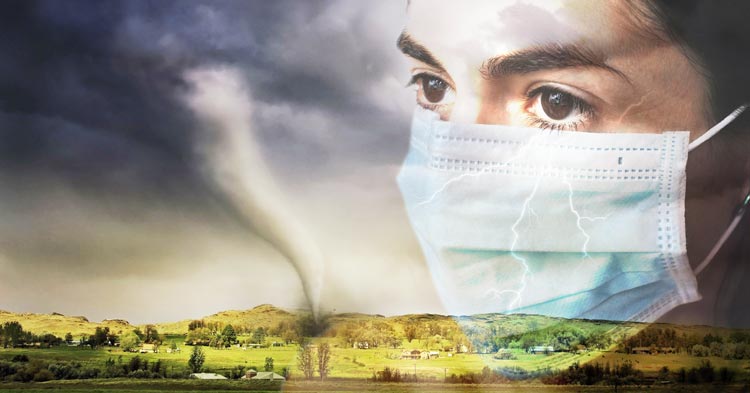The Coronavirus pandemic has upended our lives with little notice. Public events have stopped, schools and stores have closed, the financial markets have been volatile, and people are staying at home.
Amid this chaos and uncertainty, how do contracts cover employer emergencies like the Coronavirus? The answer may depend on whether your contract has a “force majeure” clause. Consider talking with a corporate attorney near you in Bucks or Montgomery Counties to make sure.
What is Force Majeure?
“Force majeure” is a French term for “unforeseeable circumstances that prevent completion of a contract”. A force majeure clause can excuse one or both parties from fulfilling a contract’s terms when an unforeseeable event occurs. The clause may either release the parties completely from performance or allow delayed or modified performance. The clause may also allow or limit refunds to parties that have made advance payments.
Not every contract has a force majeure clause. Force majeure clauses most often arise in commercial and real estate contracts. Where a contract lacks a force majeure clause, a party may seek an excuse from performance on other grounds, such as impossibility or frustration of performance.
But it is easier to use an actual event (such as a hurricane or in this case, a pandemic such as the COVID-19 outbreak resulting in guidelines enforced to stop the spread of the coronavirus) for relief from performance than a subjective factor such as impossibility or frustration of performance.
Is the shutdown of my company due to the coronavirus and COVID-19 outbreak covered under my policy?
A typical force majeure clause MAY cover some or all the following events:
- Fire
- natural or man-made disturbances
- war
- Acts of terrorism
- nuclear incidents
- riots
- Insurrections (a violent uprising against an authority or government)
- strikes
- boycotts
- lockouts
- criminal activity
- hurricanes, tornadoes, storms, blizzards or earthquakes
- weather emergencies such as extreme cold or heat
- explosions
- pandemics
- health or environmental emergencies
- embargoes
- power outages
- actions of a governmental agency
- other cause beyond the parties’ control
This list includes several Coronavirus-related events such as pandemics, health or environmental emergencies, or actions of governmental agencies.
The types of events covered by force majeure clauses break down into human-caused events or “Acts of Man”( war, terrorism, riots, strikes); natural events or “Acts of God” (floods, hurricanes, tornadoes); events with both human and natural origins (fires, explosions, pandemics); or circumstances imposed by humans to deal with emergencies (governmental actions).
It is important that a force majeure clause is drafted precisely. The clause should focus on objective events.
For example, if a hurricane hits a community, it is easier to invoke force majeure if the clause mentions hurricanes, not just an “emergency” (which may depend on a third party’s declaration) or events beyond a party’s control. It’s always easier to point to a specific natural event, without having to argue whether events really were beyond a party’s control.
For example, if a tidal flood damages an auto dealer’s inventory, it’s far quicker to say “A flood took place” than to have to speculate on whether the dealer could have controlled the damage by moving the cars inland.
“It Can’t Happen Here”
Drafters of force majeure clauses should avoid the tendency to say, “It can’t happen here”, particularly for natural disasters. Major tornadoes have occurred in Massachusetts, disastrous floods have hit the fairly dry Dakotas, and the East Coast is among the more earthquake-prone regions in the country. It’s more prudent to assume that “Anything can happen”, and to describe a large group of events in the clause.
After the emergency occurs, the victim of the unforeseen event should give prompt notice to the other parties of the invocation of the force majeure clause. The victim should explain why the performance of the contract is totally or partly impossible. If partial performance can take place, it is advisable to work out a plan with the other party for limited performance: will delivery dates be postponed; will deliveries be smaller; will services be provided in another location? The parties should then reduce the plan to a signed written amendment to the contract.
The party invoking the force majeure clause will always need to account for its own performance. This requires a showing that every effort has been made to comply with the contract before the emergency and that the performance has truly been prevented by the unexpected event. The courts will look closely to see if the party seeking excuse from performance was performing the contract before the emergency. The courts will not favor a party who uses a force majeure clause to avoid performing a contract that the party was already handling poorly.
